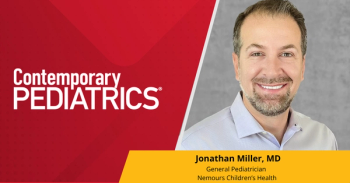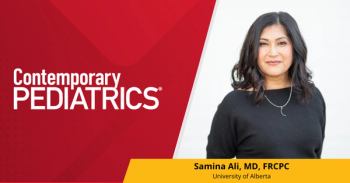
- Vol 36 No 2
- Volume 36
- Issue 2
Probiotics vs placebo against gastroenteritis
Of 973 preschool-aged children with acute gastroenteritis who visited 1 of 10 geographically diverse pediatric emergency departments (EDs), those who received a 5-day course of Lactobacillus rhamnosus GG, a commonly recommended and used probiotic, did not have better outcomes than those who received placebo, a prospective, randomized trial found.
Of 973 preschool-aged children with acute gastroenteritis who visited 1 of 10 geographically diverse pediatric emergency departments (EDs), those who received a 5-day course of Lactobacillus rhamnosus GG, a commonly recommended and used probiotic, did not have better outcomes than those who received placebo, a prospective, randomized trial found.
Participants were children aged from 3 months to 4 years (median age, 1.4 years) who had experienced 3 or more episodes of watery stools each day, with or without vomiting, for fewer than 7 days. Participants were randomly assigned to receive L rhamnosus GG at a dose of 1x1010 colony-forming units (CFUs) twice daily for 5 days or placebo. After the first dose of L rhamnosus GG or placebo was administered in the ED, caregivers provided subsequent doses and completed a daily diary in which they recorded symptoms for 5 days or until symptoms resolved. Investigators also conducted follow-up surveys 14 days and 1 month after enrollment.
Analysis of participants’ stool samples revealed that 45.6% were positive for viruses and 15.2% were positive for bacteria that are probable or possible pathogens. No pathogenic organisms were detected for 42.8% of participants. The proportion of participants who had received antibiotics or ondansetron was similar in the 2 groups.
Investigators used the Vesikari Scoring System scale to assess the severity of gastroenteritis during the 14-day follow-up period, with a score of 9 or higher indicating more severe disease. (Scores range from 0 to 20.) At the 14-day follow-up, the Vesikari score was 9 or higher in similar proportions of both groups: 11.8% of the L rhamnosus GG group and 12.6% of the placebo group. Treatment with L rhamnosus GG also failed to show benefit with regard to the duration or frequency of vomiting or diarrhea, the rate of household transmission, or the length of daycare or work absenteeism (Schnadower D, et al. N Engl J Med. 2018;379[21]:2002-2014).
Thoughts from Dr Burke
This is 1 of 2 large, simultaneously published, well-designed, placebo-controlled studies to evaluate the effectiveness of probiotics in treatment of acute gastroenteritis in young children. Neither study showed significant benefit for treatment of this condition. So, whereas various probiotic preparations have been shown to be useful in a variety of pediatric conditions (everything from treatment of colic to prevention of necrotizing enterocolitis in premature babies), acute gastroenteritis is not one of them, at least not for the strains tested here.
Articles in this issue
almost 7 years ago
Developmental outcomes of positional plagiocephalyalmost 7 years ago
Pediatric oral health: Fluoride use recommendationsalmost 7 years ago
New therapeutic measure to combat influenzaalmost 7 years ago
Not sleeping through the night by age 12 months? Not to worry!almost 7 years ago
Do-it-yourself pediatricsalmost 7 years ago
Reticulated rash on boy’s lower extremitiesalmost 7 years ago
Poverty raises risk of bacterial infection in febrile infantsalmost 7 years ago
Child with a history of multiple fracturesalmost 7 years ago
Study recommends vigilant eye screenings in JIANewsletter
Access practical, evidence-based guidance to support better care for our youngest patients. Join our email list for the latest clinical updates.








